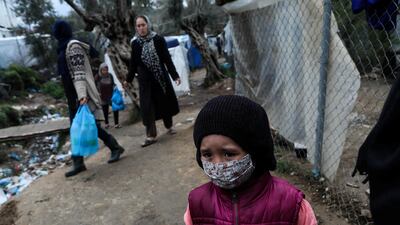The UK’s £240 million ($311.57m) initiative to tackle modern slavery in developing countries is failing, according to Britain's aid watchdog.
The Independent Commission for Aid Impact (ICAI) criticised the taxpayer-funded scheme, claimed there is limited evidence it has had a long-term impact, accused it of having inadequate consultation with survivors and said there is a lack of research on “what works”.
The watchdog also condemned the UK's use of the term ‘modern slavery’ over fears it stigmatises survivors as slaves.
In a report published on Wednesday, the ICAI said the UK has not built on existing international efforts and experience.
It said despite the government playing a prominent role in raising the profile of the issue globally, it has failed to adequately involve survivors.
Ending modern slavery at home and abroad has been a significant priority for the government, which pledged in 2018 to spend £200 million ($259.64m) of aid addressing the issue. This has since been increased to £240m ($311.57m).
Despite the funding pledge to date only £23.9m ($31.03m) has been invested in the projects which are aimed at tackling human trafficking and child labour.
Former British prime minister Theresa May launched the Call to Action in 2017, which was endorsed by more than 90 countries, and saw the term “modern slavery” being included in the UN’s Sustainable Development Goals in 2015.
However, reviewers said there had been little evidence of impact “on the ground” from programmes or the Call to Action project, and the campaign had not built adequately on existing efforts by other agencies.
Many projects were too short-term, it said, to have a sustainable impact on modern slavery, including for survivors, who typically need support over a long period.
The report states that the government’s approach was not underpinned by a detailed understanding of the challenge or a statement setting out how it was using aid for this purpose - survivors were not sufficiently consulted, and many projects were too short-term to have sustainable impact.
As a result, ICAI has awarded the initiative an amber-red score for unsatisfactory achievement in most areas, and made five recommendations.
ICAI commissioner Sir Hugh Bayley, who led the review, said it was not clear how the initiatives are tackling the issues.
“Modern slavery causes untold suffering, and the UK’s £200 million commitment to tackling this complex and hidden problem is important – particularly with Covid-19 making more people vulnerable to trafficking and slavery," he said.
“Because this is a new use for UK aid, officials are piloting new ways of working. While some of these pilots have worthwhile results, it is not clear the government’s interventions are reducing the scale of modern slavery, and they should publish a statement setting out how they are using aid for this purpose.”
ICAI said the government has acknowledged that evidence of “what works” in this “new and complex” area for UK aid was currently limited. However, the aid watchdog has criticised it for not adequately learning about or building on existing international efforts and agreements, some of which had been in place for decades, instead choosing to treat it as a new topic for international cooperation.
The report noted that some countries, including India, Pakistan, France and Germany, disagreed with the UK’s approach and had chosen not to endorse the Call to Action – and that others that had signed up had not put in place practical measures to implement it.
ICAI has recommended that the government should develop a systematic approach to filling gaps in knowledge, do more to draw on survivors' voices when designing programmes, publish its approach to using aid to address modern slavery, examine the scope for more interventions in neglected areas and strengthen its partnerships with the private sector and other governments.
Activities have included a programme which enrolled 4,000 at-risk youngsters into school in India and support for 2,000 trafficking survivors in Nigeria.


